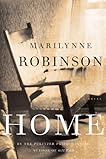- The excitement of going public. Even grouping up as a church on a public beach causes a scene, and there is a certain thrill in the outing of our faith.
- The awkwardness of the moment. Let's face it, the whole experience borders on the odd: a man grabs a person by the neck and arms and offers some ritual words and plunges them backward into the water and pulls them out again and everybody cheers. It's weird, and it's weirder out in the middle of the world. And that makes it specialer. (If I can use "weirder," I can use "specialer").
- The display of new faith. Most of the time a baptism happens because somebody has recently given themselves whole hog to Jesus. It is exhilarating.
- Joy, joy, and joy.
- The visible expression of real grace. Communion is a quiet, usually somber time to reflect on the cost of grace, but baptism punches all the celebration buttons; invite the family, your neighbors, bring out the food, splash in the water, make some noise, and PARTY! It is an earthly reflection of the heavenly party that happens when God redeems one of his own. (See Luke 15)
- It's flat-out contagious. Baptism sparkles up the reality of grace in real time, and the bubbles spread around like champaign to tickle spiritual noses all over the place.
"Grace changes us and change is painful." Flannery O'Connor
Monday, July 27, 2009
Six Reasons to Love Baptisms
Baptizing people has always been on the top of my list for pastoral duties, but doing it in a public lake is even better. Yesterday Grace Christian Fellowship braved rough weather to celebrate a dunking at Haithco Park in Saginaw, and it was great. Here are six reasons baptisms flip my switch:
Wednesday, July 01, 2009
 Home: A Novel by Marilynne Robinson
Home: A Novel by Marilynne RobinsonMy review
rating: 5 of 5 starsThe whole idea that theology -- the study of God -- can be systematized seems more ludicrous to me all the time. Yes, I believe that God can be understood rationally. I believe that every part of himself that he chooses to reveal to us is provided in good faith, and is comprehendible to anyone who will allow belief. I believe that we can analyze it, study it, write about it, etc. What fails for me is the leap between this kind of academic study into the real lives of people who, honestly, have no ken to dabble in the drudgery of high-flung theological abstracts; they just want to know if Aunt Liz is headed for heaven or hell.
So - thank God for Marilynn Robinson and her ilk. Daring to take deep theological truths, and the debate thereon, and fit them into a powerful character study is courage, plain and simple.
In "Home," Robinson enjoins the topic of predestination. (YES! That's what I said!). She crafts her story with subtle, fleshy characters who defy the reader to love them. Glory, the primary POV in the book, questions God's planning for her life, especially bemoaning her fatalistic return to the rural Iowa town of Gilead. The appearance of her brother, Jack, complicates life for her, but in the same season provides joy and purpose to answer her loneliness.
Driving and stirring the story, the Rev. John Boughton serves as provocateur and theological thorn in the sandal. From his bed, his chair, and his patriarchal perch, Papa Boughton uses a prodding needle of love and guilt and applies it to the touch-points of the families' history.
Every family has a prodigal. Like Aunt Liz. What we want to know about her is not going to be answered in a textbook. It will be answered in the tug and pull of life. And, like "Home," firm and hard answers are not always provided. But the learning is in the living.
Robinson's writing is powerful and gentle. You don't need to have read "Gilead" prior to reading "Home," but it wouldn't be a bad idea.
View all my reviews.
Subscribe to:
Comments (Atom)